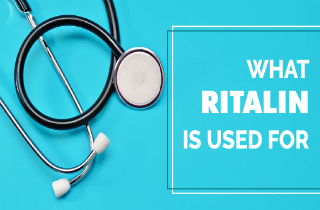Ritalin is used for the treatment of Attention-Deficit Hyperactivity Disorder (ADHD). However, Ritalin can also be abused. Learn the difference between use and abuse here. Then, we invite your questions about the misuse of Ritalin or findng Ritalin addiction help in the comments section at the end.
Ritalin uses
Ritalin is a central nervous system stimulant prescription medicine. It is used for the treatment of ADHD and may help increase attention and decrease impulsiveness and hyperactivity in patients with ADHD. People with ADHD persistently have more difficulty paying attention or are more hyperactive or impulsive than other people the same age. This pattern of behavior usually becomes evident when a child is in preschool or the first grades of elementary school; the average age of onset of ADHD symptoms is 7 years. Many peoples ADHD symptoms improve during adolescence or as they grow older, but the disorder can persist into adulthood. Ritalin is often prescribed to treat children, adolescents, or adults diagnosed with attention-deficit hyperactivity disorder (ADHD).
Ritalin is also used in the treatment of a sleep disorder called narcolepsy. However, Ritalin should be used as a part of a total treatment program for ADHD that may include counseling or other therapies.
Ritalin uses and side effects
Methylphenidate can be habit-forming. Do not take a larger dose, take it more often, take it for a longer time, or take it in a different way than prescribed by your doctor. If you take too much methylphenidate, you may find that the medication no longer controls your symptoms, you may feel a need to take large amounts of the medication, and you may experience unusual changes in your behavior.
Common side effects of Ritalin use are:
- decreased appetite
- eyesight changes or blurred vision
- headache
- nausea
- nervousness
- painful and prolonged erections (priapism) have occurred with methylphenidate. If you or your child develop
- priapism (Seek medical help right away. Because of the potential for lasting damage, priapism should be evaluated by a doctor immediately.)
- seizures, mainly in patients with a history of seizures
- slowing of growth (height and weight) in children
- stomach ache
- trouble sleeping
Talk to your doctor if you or your child has side effects that are bothersome or do not go away. This is not a complete list of possible side effects. Ask your doctor or pharmacist for more information also about the symptoms or signs of Ritalin addiction.
Illegal Ritalin use
Ritalin is a Schedule II substance under the Controlled Substances Act. Schedule II drugs, which include cocaine and methamphetamine, have a high potential for abuse. Abuse of these drugs may lead to severe psychological or physical dependence. In fact, abusing Ritalin is illegal. How do people abuse Ritalin?
Individuals who abuse Ritalin take it without a prescription or in ways OTHER THAN PRESCRIBED. They either swallow the tablets or crush them to produce a powder, which is snorted. Some abusers dissolve the tablets in water and then inject the mixture. Individuals who abuse the drug, risk binge use, psychotic episodes, cardiovascular complications, and severe psychological addiction. In addition, abusers who inject the drug risk further complications because insoluble fillers in Ritalin tablets can block small blood vessels. Injection users also place themselves at risk of contracting HIV (human immunodeficiency virus), hepatitis B and C, and other blood-borne viruses.
Problems with Ritalin
Methylphenidate may cause sudden death in children and teenagers, especially children or teenagers diagnosed with heart defects or serious heart problems. This medication also may cause sudden death, heart attack or stroke in adults, especially adults with heart defects or serious heart problems. Talk to your doctor about the risks of taking this medication.
Further, methylphenidate may slow children’s growth or weight gain. Your child’s doctor will watch his or her growth carefully. Talk to your child’s doctor if you have concerns about your child’s growth or weight gain while he or she is taking this medication. Talk to your child’s doctor about the risks of giving methylphenidate to your child.
Questions about using Ritalin
Do you still have questions about using Ritalin properly? Do you need help for Ritalin abuse? Please leave your questions or comments in the section below. We do our best to respond to legitimate concerns personally and promptly.









Related Posts